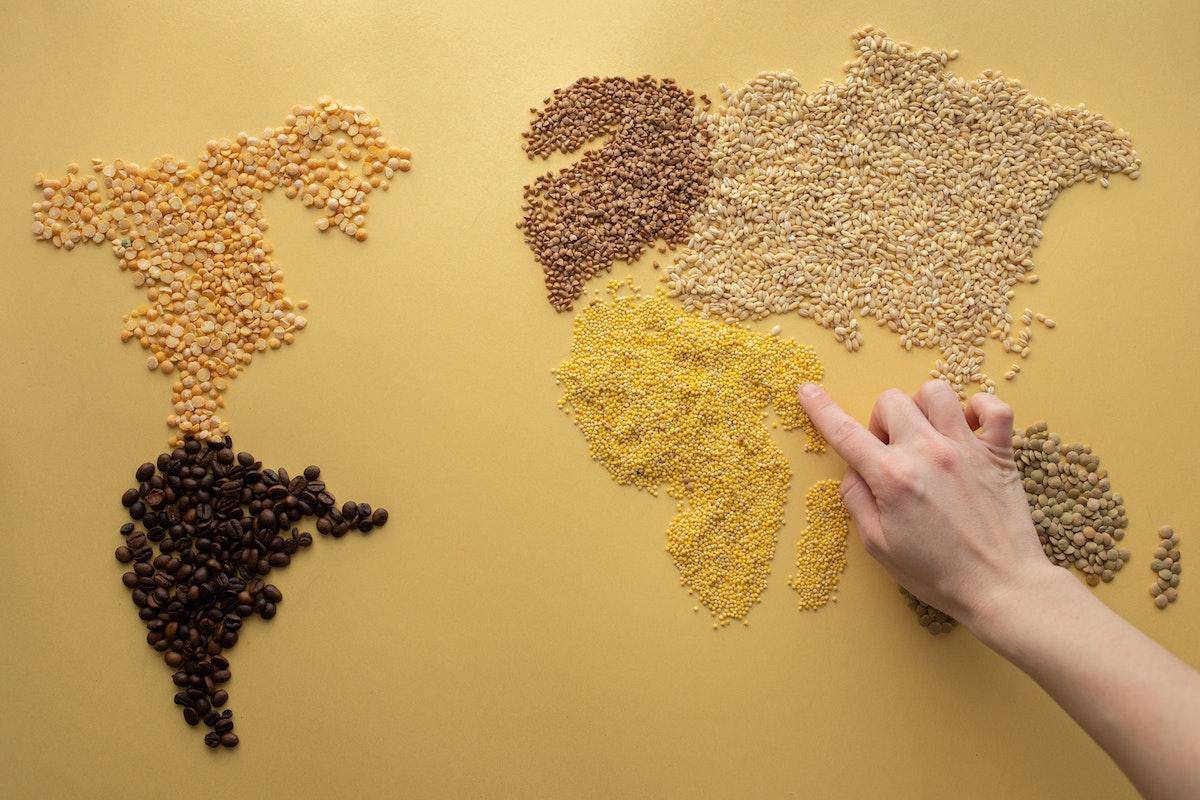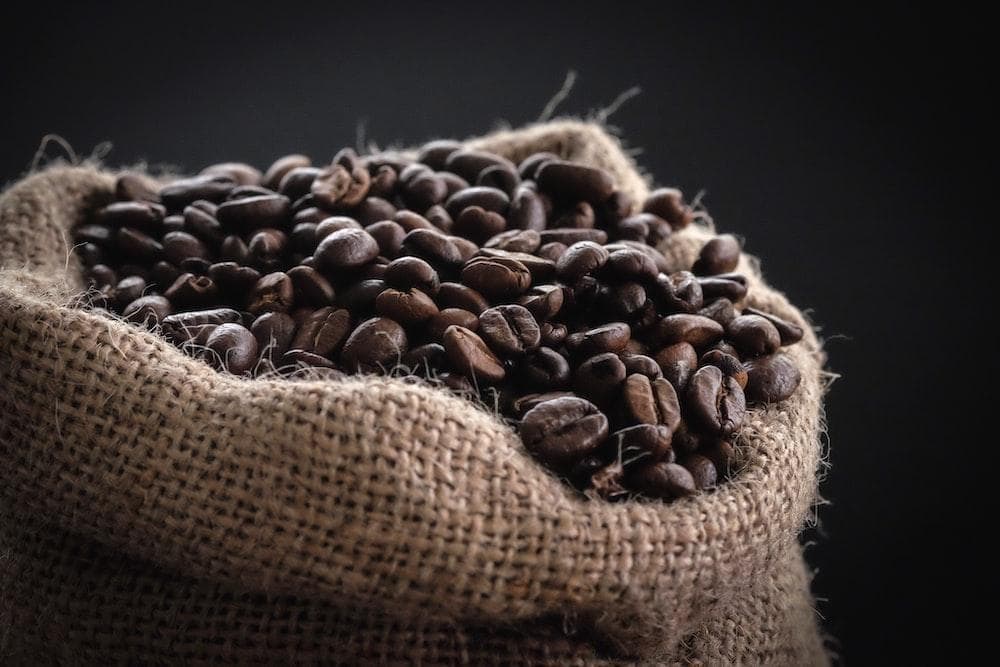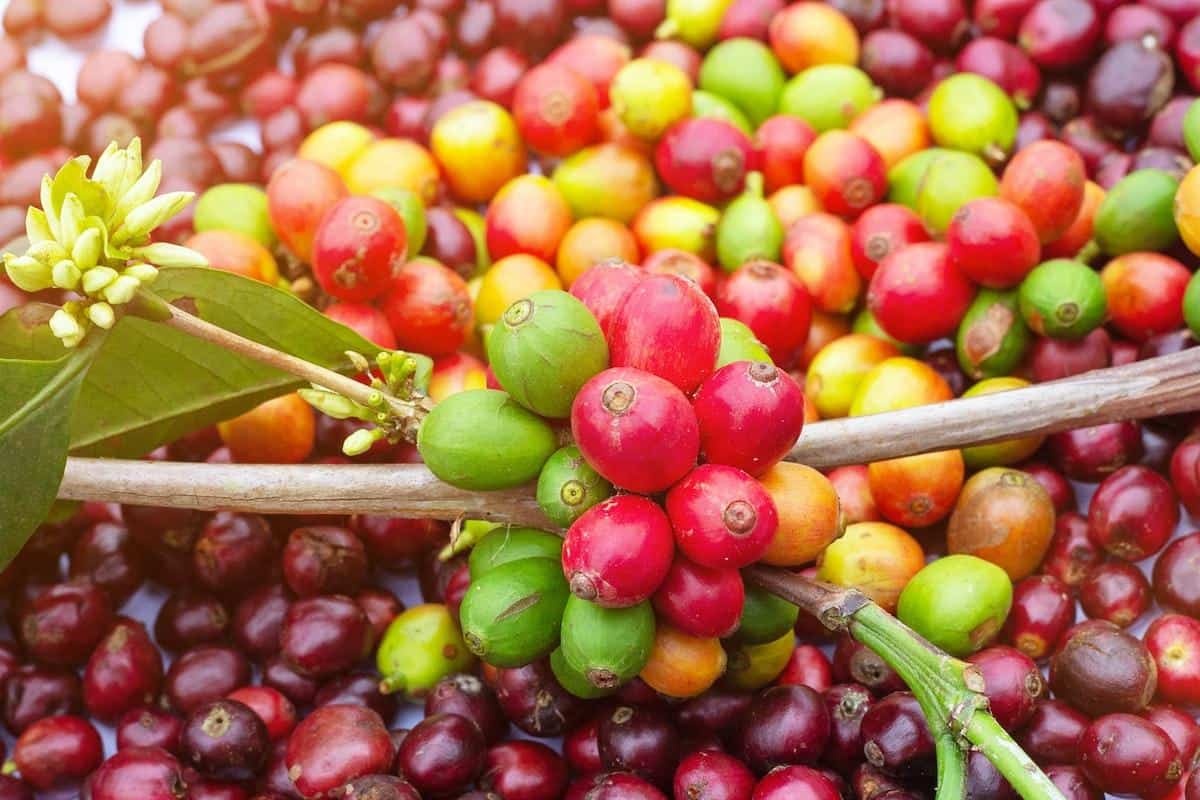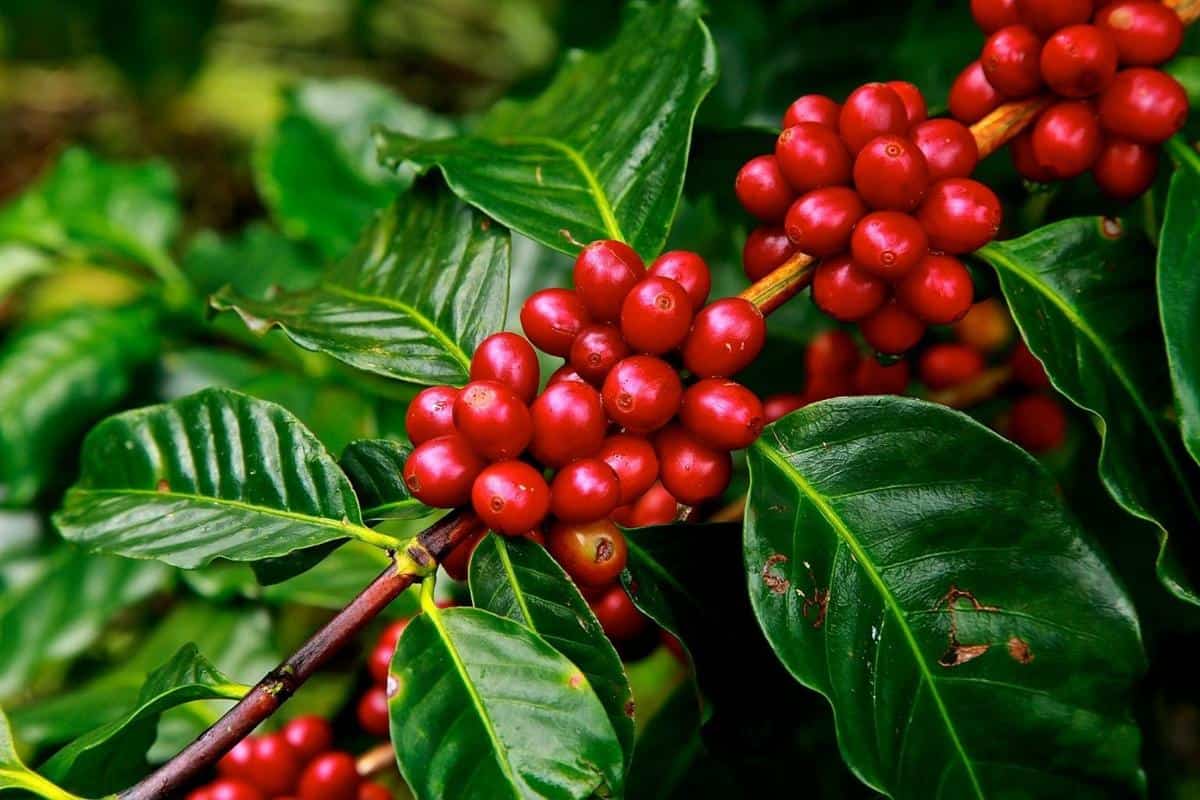South African coffee brings forth a rich and vibrant world of flavors that promises to indulge your senses. From its intriguing history to its unique brewing techniques, South African coffee offers a taste sensation like no other.
In this article, we will delve into the intriguing world of South African coffee, exploring its rich heritage, distinctive characteristics, and the rise of specialty coffee shops in the country. Get ready to embark on a sensory journey as we uncover the secrets behind this delicious beverage.
Tracing its roots from plantation to cup, the history of South African coffee is as fascinating as it is steeped in tradition. We will explore how coffee cultivation arrived on the shores of South Africa and how it has evolved over the years. From the early Dutch settlements to present-day artisanal coffee shops, you will discover the journey that South African coffee has taken to become a beloved beverage in the country.
One cannot discuss South African coffee without delving into its unique flavors and aromas. Each sip delivers a distinct character that reflects the region where it was grown. We will uncover what makes South African coffee beans stand out from their counterparts around the world and explore how different brewing techniques can enhance these flavors even further. Get ready to awaken your taste buds as we dive into an exploration of the distinctive characteristics of South African coffee.
Join us as we embark on this exciting adventure into the world of South African coffee. From its rich history to its unique flavors and aroma profiles, there is so much more to discover beyond your morning cup. So sit back, relax, and prepare yourself for an indulgent sensory journey through the captivating realm of South African coffee.
The History of South African Coffee
South African Coffee has a rich and fascinating history that dates back centuries. Tracing its roots from plantation to cup, the history of South African coffee reveals the intricate journey that this beloved beverage has taken over time.
Origins and Introduction of Coffee to South Africa
Coffee was first introduced to South Africa by Dutch settlers in the late 17th century. The Dutch East India Company played a significant role in importing coffee plants from Indonesia, marking the beginning of South Africa’s coffee industry. The ideal climate conditions found in certain regions of South Africa, such as the Eastern Cape and KwaZulu-Natal, made it possible for coffee farming to thrive.
The earliest commercial coffee plantation in South Africa was established in 1808 by Henrik van Zyl on the slopes of Table Mountain. This marked a milestone in the country’s coffee production and set the stage for further growth and exploration of different coffee cultivars.
Diversification and Development
Over the years, South African farmers experimented with various coffee varieties to find those best suited for their unique climate and soil conditions. This experimentation led to the discovery of new flavors and aromas that would later form the foundation of distinctively South African coffees.
While coffee production suffered setbacks due to political turmoil in the country during the 20th century, efforts were made to revive and improve quality. With advancements in cultivation techniques, processing methods, and increased investments in infrastructure, South African coffee once again began gaining recognition on both local and international stages.
Today, South Africa is known for its specialty coffees which are grown with care and expertise. These exceptional coffees demonstrate how far the industry has come since its humble beginnings and showcase the passion that local farmers have for their craft.
Preserving Traditions while Embracing Innovation
When exploring the history of South African coffee, it becomes clear that there is a delicate balance between preserving traditional farming practices and embracing new technologies. Many farmers in South Africa still employ age-old methods, such as hand-picking the coffee cherries and sun-drying them, which contribute to the unique flavors found in their beans.
At the same time, innovative techniques, such as using shade nets or drip irrigation systems, are being implemented to enhance sustainability and increase productivity. This combination of tradition and innovation ensures that South African coffee continues to evolve while maintaining its distinctive character.
Unique Flavors and Aromas
South African coffee is renowned for its unique flavors and aromas, offering a sensory experience unlike any other. The distinctive characteristics of South African coffee can be attributed to various factors, including the country’s diverse climate, rich soil, and unique growing conditions.
One of the key elements that contributes to the distinctive flavors of South African coffee is the region’s abundant sunshine. The ample sunlight allows the coffee beans to develop a rich sweetness and vibrant acidity that sets them apart from other coffees. Additionally, South Africa’s altitudes and microclimates contribute to the development of complex flavor profiles in the coffee beans.
When it comes to aromas, South African coffee offers a wide range of enticing scents that captivate the senses. From floral and fruity notes to hints of chocolate and spices, there is something for every coffee lover to discover in South African brews. The fragrances are often influenced by the specific growing regions and the varietals cultivated there.
To fully appreciate the distinctive characteristics of South African coffee, it is important to explore different brewing methods that highlight these flavors and aromas. Whether it’s through pour-over brewing, French press, or espresso-based beverages, each method can bring out different aspects of the coffee’s profile. Experimenting with brewing techniques can lead to exciting discoveries and a deeper appreciation for South African coffee.
To fully enjoy this unique experience, consider trying out different varieties and blends of South African coffee beans. Some popular options include single-origin coffees from regions like Mpumalanga or KwaZulu-Natal, as well as blends that combine beans from different parts of the country. Each variety offers its own distinct flavor profile, allowing you to embark on a flavorful journey through South Africa’s diverse coffee offerings.
The Art of Brewing
South African coffee is renowned for its distinctive flavors and aromas, but to truly experience the full potential of these beans, it is essential to master the art of brewing. Each brewing method brings out different characteristics of the coffee, allowing you to tailor your cup to your personal taste preferences. Here are some popular brewing techniques used in South Africa:
- Pour-Over: This method involves pouring hot water over ground coffee in a filter, allowing it to slowly drip into a carafe below. The pour-over method offers excellent control over the extraction process, resulting in a clean and delicate cup of coffee with bright acidity. It showcases the nuanced flavors and aromas that South African coffee is known for.
- French Press: The French press is a classic brewing method cherished by many South African coffee enthusiasts. Coarsely ground beans steep in hot water for several minutes before being pressed through a mesh filter. This technique produces a full-bodied cup with rich flavors and bold aromas. It accentuates the natural earthy notes often found in South African coffee.
- Espresso: For those seeking a strong and intense caffeine kick, espresso is the way to go. Finely ground beans are tightly packed into a portafilter and hot water is forced through at high pressure, resulting in a concentrated shot of espresso. South African coffee brewed as espresso often exhibits a smooth mouthfeel with chocolatey undertones and hints of dried fruits.
- Aeropress: The aeropress is a versatile and portable brewing device that allows for experimentation with different variables such as brew time and temperature. Coffee grounds steep in hot water before being plunged through a paper or metal filter using air pressure. This method can produce both strong concentrated shots and smoother cups depending on your preference.
Remember that mastering these techniques takes practice, so don’t be discouraged if your first few attempts aren’t perfect. Experimentation is key when it comes to finding your ideal balance of flavors and aromas. Whether you prefer a pour-over, French press, espresso, or aeropress, the art of brewing South African coffee is an enjoyable journey that rewards you with a perfect cup every time.
Must-Try Varieties
South Africa is home to an impressive variety of coffee beans and blends, each offering a unique taste experience. Whether you prefer a light and fruity blend or a bold and robust single origin bean, there is something to suit every palate. Delving into the wide array of South African coffee beans and blends allows coffee enthusiasts to explore diverse flavors and discover their personal favorites.
One must-try variety is the Ethiopian Harrar coffee, which has gained popularity in South Africa for its exceptional quality. Grown in the Eastern Highlands of Ethiopia, this coffee is known for its wine-like acidity, fruity undertones, and floral aromas. It offers a complex flavor profile that includes notes of blueberries, chocolate, and spice. South African coffee lovers can savor this exquisite beverage in various forms, including espresso shots or pour-over brews.
Another notable variety is the Tanzanian Peaberry. This particular bean is carefully hand-selected for its small size and rounded shape, resulting in a more concentrated flavor. Tanzanian Peaberry is characterized by its bright acidity, medium body, and vibrant citrus flavors. It is often described as having a clean taste with hints of blackcurrant and caramel. This unique variety appeals to those seeking a well-balanced cup with delightful nuances.
In addition to these single origin beans, South Africa also boasts an array of delightful coffee blends. One popular blend is the Cape Town Roast, which combines beans from different regions within South Africa to create a harmonious balance of flavors. This blend typically features a mix of Arabica beans known for their smoothness and Robusta beans renowned for their richness and crema production. The result is an aromatic cup with notes of chocolate, nuts, and dried fruit.
Whether exploring single origin beans or indulging in expertly crafted blends, the wide array of South African coffee varieties provides endless opportunities for discovery and enjoyment. From the lively Ethiopian Harrar to the refined Tanzanian Peaberry and the harmonious Cape Town Roast, there is a taste sensation waiting to be discovered by every coffee lover in South Africa.
The Rise of Specialty Coffee in South Africa
South Africa has experienced a flourishing coffee culture in recent years, with the rise of specialty coffee and the emergence of artisanal coffee shops. These establishments have redefined the way people experience and appreciate coffee, offering a unique and elevated sensory journey for coffee enthusiasts.
A New Wave of Coffee Culture
Artisanal coffee shops have become hubs for coffee lovers to gather, socialize, and indulge in their passion for high-quality brews. These specialty establishments focus on sourcing top-grade beans from around the world, paying meticulous attention to every step of the coffee-making process. From selecting beans with distinctive flavors to precise brewing techniques and latte artistry, these shops prioritize craftsmanship and quality.
This new wave of coffee culture can be attributed to a growing demand among consumers for more than just a caffeine fix. People are seeking unique flavor profiles, traceable origins, and personalized experiences that can only be found in artisanal settings. The emergence of these specialty coffee shops has sparked an appreciation for the nuanced qualities that make each cup of coffee an exceptional sensory experience.
The Role of Baristas as Craftsmen
Baristas in these artisanal establishments are considered craftsmen who take pride in their knowledge, skill, and creativity. They undergo rigorous training programs to master brewing techniques such as pour-over, AeroPress, or espresso-based methods like flat whites or cappuccinos. Their expertise allows them to extract the full potential flavor from each bean while delivering consistently excellent cups of coffee.
These baristas also play a crucial role in educating customers about different varieties of South African coffee as well as international blends. They guide customers through tasting notes, recommended brewing methods, and even help customers develop their personal preferences by suggesting single-origin or blended options based on flavor profiles. This level of service fosters a deeper appreciation for coffee, encouraging customers to explore and expand their palate.
Creating Community and Connection
Artisanal coffee shops have become more than just places to grab a quick caffeine fix; they have become community hubs that promote connection and socialization. These establishments often feature cozy atmospheres, inviting customers to slow down and enjoy the experience of savoring a perfectly brewed cup of coffee. Whether it’s engaging in conversation with baristas or connecting with fellow coffee enthusiasts at communal tables, these spaces foster a sense of belonging in the midst of the bustling city.
Furthermore, these artisanal coffee shops often collaborate with local food vendors, displaying their commitment to supporting other small businesses within the community. This synergy adds another layer to the overall experience by offering patrons an opportunity to pair their specialty coffees with delectable treats created by local artisans.
The rise of specialty coffee and the emergence of artisanal coffee shops in South Africa have transformed the way people perceive and consume coffee. These establishments provide an avenue for enthusiasts to embark on a sensory journey, explore different brewing techniques, and connect with like-minded individuals. With an unwavering commitment to quality and craftsmanship, South Africa’s specialty coffee scene is poised to continue thriving and delighting coffee lovers around the world.
Coffee Culture in South Africa
South Africa is home to a vibrant coffee culture, with a thriving café scene that has captured the hearts of locals and tourists alike. From bustling urban hubs to quaint coastal towns, South African cafés offer unique experiences and rituals that truly embody the spirit of this country’s coffee culture.
One notable aspect of South African coffee culture is the emphasis on specialty coffee. In recent years, there has been a significant rise in artisanal coffee shops that focus on sourcing high-quality beans and using precise brewing methods. These specialty cafés have become havens for coffee enthusiasts, providing a space to appreciate the artistry and craftsmanship behind each cup.
Another intriguing aspect of South African café scenes is the culture of socializing over coffee. Coffee shops in South Africa are more than just places to grab a quick caffeine fix; they are social spaces where friends gather, business meetings take place, and communities come together. Coffee rituals such as “taking a break for tea” or “having a quick chat over coffee” have become deeply ingrained in the daily lives of South Africans.
To fully immerse yourself in South African café culture, it’s important to understand some common rituals and traditions. Ordering a “biltong croissant,” which combines traditional South African dried meat with flaky pastry, is a popular breakfast choice among locals. Additionally, many cafes offer traditional rooibos tea alongside their coffee options, allowing patrons to explore another integral part of South Africa’s beverage culture.
| Aspect | Description |
|---|---|
| Specialty Coffee | The rise of artisanal coffee shops focusing on high-quality beans and precise brewing methods. |
| Socializing over Coffee | Coffee shops as social spaces for friends, business meetings, and community gatherings. |
| Rituals and Traditions | Ordering unique items like “biltong croissant” and exploring traditional rooibos tea. |
Health Benefits of South African Coffee
South African coffee not only tantalizes the taste buds but also brings along a host of health benefits. From boosting energy levels to promoting heart health, this beloved beverage has surprising perks that make it a delightful addition to one’s lifestyle.
Boosts Energy and Mental Alertness
Coffee is well-known for its ability to provide an instant energy boost and improve mental alertness. South African coffee is no exception. Thanks to its high caffeine content, a cup of South African coffee can help you stay awake, focused, and energized throughout the day. Caffeine acts as a stimulant by blocking adenosine receptors in the brain, which reduces fatigue and increases wakefulness.
Loaded with Antioxidants
South African coffee contains powerful antioxidants that can protect your body against free radicals and reduce the risk of chronic diseases such as heart disease, cancer, and diabetes. The antioxidants present in coffee include chlorogenic acid and melanoidins, which have been linked to various health benefits such as reducing inflammation and regulating blood sugar levels.
Potential Weight Loss Aid
If you’re looking for an extra boost in your weight loss efforts, South African coffee may be just what you need. Research suggests that caffeine can increase metabolism and promote fat burning. Additionally, coffee can act as an appetite suppressant, helping you feel satiated for longer periods.
Improves Physical Performance
For those who enjoy an active lifestyle or engage in regular exercise, South African coffee can be a beneficial pre-workout drink. The caffeine in coffee has been shown to enhance physical performance by stimulating the nervous system and increasing adrenaline production. This can lead to improved endurance during workouts and enhanced muscle contraction.
While South African coffee offers numerous health benefits, it’s essential to consume it in moderation as excessive consumption can have adverse effects such as insomnia, digestive issues, and anxiety. Additionally, it’s important to note that individual responses to coffee can vary, so it’s always wise to listen to your body and adjust your consumption accordingly. With the right balance, South African coffee can be a delightful addition to a healthy lifestyle.
Sustainable Practices in South African Coffee Production
South Africa is not only known for its exquisite coffee flavors and aromas, but also for its commitment to sustainable practices in coffee production. In recent years, the industry has made significant strides towards promoting ethical farming and ensuring the long-term viability of coffee cultivation in the region.
One of the ways that South African coffee producers promote sustainability is through their focus on organic farming methods. Many farmers have shifted away from conventional agricultural practices and embraced organic techniques that eliminate the use of synthetic fertilizers, pesticides, and herbicides. This not only helps to protect the environment by reducing chemical pollution, but it also improves soil fertility and promotes biodiversity.
Another important aspect of sustainable coffee production in South Africa is the emphasis on fair trade principles. Fair trade certification ensures that farmers are paid a fair price for their crops, which helps to alleviate poverty and improve living conditions in coffee-growing regions. It also promotes transparency and accountability throughout the supply chain, ensuring that all stakeholders are treated equitably.
Furthermore, South African coffee producers are increasingly investing in initiatives that support community development and empowerment. This includes providing training programs to help farmers improve their practices, as well as offering financial assistance and access to resources such as healthcare and education. By prioritizing the well-being of both people and nature, the industry is creating a more sustainable future for South African coffee.
| Practices | Benefits |
|---|---|
| Organic Farming |
|
| Fair Trade Principles |
|
| Community Development |
|
Beyond the Cup
South African coffee is not only enjoyed in a traditional cup, but it also serves as inspiration for numerous recipes and culinary delights. The unique flavors and aromas of South African coffee beans provide a rich base for incorporating them into various dishes, desserts, and even cocktails. From savory meat rubs to decadent desserts, the possibilities are endless when it comes to incorporating this delightful ingredient into your culinary creations.
One popular way to utilize South African coffee is in baking. The deep and robust flavors of the coffee can enhance the taste of cakes, cookies, and other baked goods. Adding ground coffee or espresso powder to chocolate cake batter adds a subtle bitterness that enhances the richness of the chocolate. Similarly, incorporating coffee into frosting or glaze can provide a unique flavor profile that complements the sweetness of pastries and desserts.
Coffee-infused marinades and rubs are another way to incorporate South African coffee into savory dishes. Ground coffee beans can be combined with spices like paprika, cumin, and garlic powder to create a flavorful rub for steaks or ribs. The natural oils in coffee help tenderize meat while adding a smoky and slightly bitter note to the dish.
Coffee cocktails have also gained popularity in recent years, offering an innovative twist on classic drinks. Using brewed South African coffee as a base for cocktails creates a complex flavor profile that pairs well with ingredients like spirits, liqueurs, and even spices. A classic espresso martini made with South African coffee provides a sophisticated blend of flavors that is both refreshing and bold.
Incorporating South African coffee into your cooking not only adds depth and complexity but also provides an opportunity to explore new flavor combinations. Whether you’re baking sweet treats or experimenting with savory dishes, this versatile ingredient is sure to take your culinary creations to new heights.
| Recipe | Description |
|---|---|
| Coffee-Rubbed Steak | This recipe combines ground South African coffee with spices to create a flavorful rub for steak. The coffee adds a smoky and slightly bitter note to the meat. |
| Mocha Chocolate Cake | This decadent cake incorporates South African coffee into the batter, enhancing the rich taste of chocolate. The coffee also adds a subtle bitterness to balance the sweetness of the cake. |
| Coffee Old Fashioned | This cocktail puts a twist on the classic Old Fashioned by incorporating brewed South African coffee. The coffee adds depth and complexity to the drink, complementing the flavors of whiskey and bitters. |
Conclusion
In conclusion, embracing the South African coffee experience offers a one-of-a-kind sensory journey that is sure to satisfy even the most discerning coffee connoisseur. Throughout this article, we have explored the rich history, unique flavors, brewing techniques, must-try varieties, rise of specialty coffee shops, and vibrant coffee culture in South Africa.
We have also uncovered the surprising health benefits and sustainable practices in South African coffee production. Lastly, we have delved into the world beyond the cup, where South African coffee-inspired recipes and culinary delights await.
South African coffee truly offers a taste sensation that is unlike any other. The combination of rich soil, ideal climate conditions, and skilled craftsmanship result in exquisite flavors and aromas that can only be found in this part of the world. From fruity notes to chocolate undertones, each sip of South African coffee is a delightful experience for the palate.
When visiting South Africa or exploring its local coffee scene, it is essential to embrace all aspects of this unique beverage. Take the time to visit artisanal coffee shops and immerse yourself in their laid-back yet passionate atmosphere. Observe the captivating rituals and traditions surrounding coffee consumption in cafes across the country. And don’t forget to try some of the delectable South African coffee-inspired recipes that showcase how versatile this beverage can be.
In summary, indulging in South African coffee goes far beyond simply enjoying a cup of joe. It is an opportunity to embark on a sensory journey filled with history, culture, and innovation. So whether you are a seasoned coffee enthusiast or someone looking for an unforgettable experience, embrace the world of South African coffee and let your taste buds be captivated by its flavors and aromas like never before.
Frequently Asked Questions
Does South Africa have good coffee?
South Africa has made great strides in its coffee culture over the years, but whether it can be considered to have “good” coffee is subjective. The country does have a growing specialty coffee scene in the major cities, with an increasing number of cafes and roasters that focus on quality beans and brewing methods.
However, compared to some other countries renowned for their coffee culture, South Africa still has some catching up to do. That being said, there are certainly options for coffee lovers to enjoy a good cup of joe in South Africa.
What coffee is popular in South Africa?
In South Africa, the most popular type of coffee is generally instant coffee or filter coffee brewed from ground beans. These traditional forms of coffee have been widely consumed for many years across the country.
However, with the emergence of specialty coffee shops and roasters, there has been a rise in popularity for espresso-based drinks such as cappuccinos and lattes among urban dwellers and younger generations.
Does South Africa produce its own coffee?
Although South Africa does not produce a significant amount of its own coffee, there are some local farms and micro-roasters that cultivate and roast small quantities of Arabica beans within the country’s borders.
However, due to various factors such as climate limitations and challenges in achieving high-quality crops consistently, South Africa’s domestic coffee production remains relatively niche compared to other regions known for their coffee cultivation.
Which African country has the best coffee?
It is difficult to definitively determine which African country has the best coffee as different regions produce distinct flavors influenced by their unique terroir and farming practices. Countries such as Ethiopia and Kenya are often celebrated as producing exceptional coffees due to factors like high altitude conditions, rich volcanic soils, and a long history of cultivating heirloom varietals with complex flavor profiles.
Other African countries like Burundi, Rwanda, Tanzania, or Uganda also have notable contributions to the specialty coffee world with their distinct flavor characteristics.
Which country coffee is best in the world?
The question of which country has the best coffee in the world is highly subjective and varies depending on personal taste preferences. Different countries are known for their unique coffee profiles and brewing techniques. For example, Ethiopia is often hailed as the birthplace of coffee and has a rich coffee heritage with diverse flavor profiles.
Countries such as Colombia, Brazil, Costa Rica, Guatemala, and Jamaica are also renowned for producing high-quality coffees loved by many worldwide. Ultimately, what constitutes the “best” coffee will ultimately depend on an individual’s preferences in terms of flavor, aroma, body, and other characteristics that resonate with their palate.









